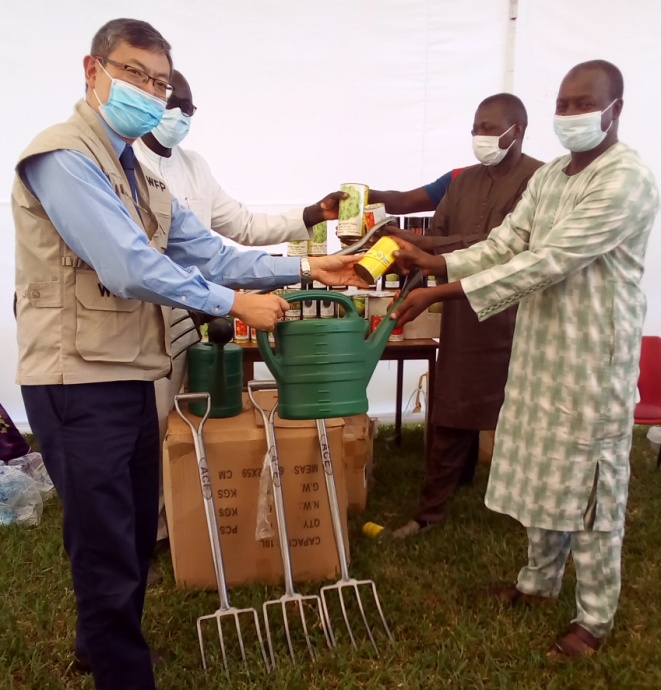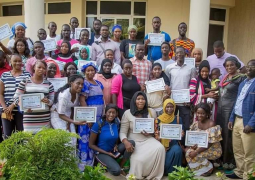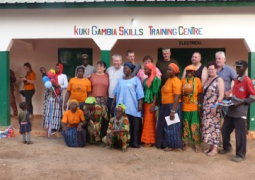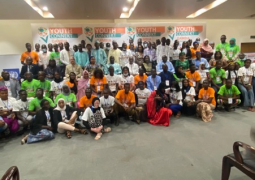
The gesture is under the project title: Resilience Strengthening of Women Farmers against the Impact of Climate Change and Conflicts.
The items included: 500 tins of tomato, 500 tins of cabbage, 500 tins of okra, 300 tins of onion, 400 tins of bitter tomato, 600 tins of egg plant, 300 tins of lettuce, 200 tins of butter nut squash, 250 tins of carrot, 300 tins of chilli, 300 tins of sweet pepper, 300tins of hot pepper, 300 tins of watermelon, 50, 000 poly pot bags, 950 watering cans and 1,900 garden forks.
This followed an assessment conducted by WFP, Department of Horticulture under the Ministry of Agriculture, Soil and Water Management and The Gambia Red Cross Society. GRCS with funding from WFP procured the items on behalf of the Department of Horticulture to be distributed to 20,000 women gardeners in rural Gambia to support their vegetable production, livelihood and nutritional status.
At the handing over ceremony, Alasan Senghore, secretary general Gambia Red Cross Society said covid-19 is health related but comes with some negative impact on other issues particularly socio-economic development.
He explained that even ‘if covid-19 was to disappear’ it would be long before its socio-economic impact fades on people, particularly in The Gambia.
“Today the priority should be looking at long term on how covid-19 has affected the lives and livelihood of Gambians. It is important that we come together and support communities to start working on horticulture and agriculture in general to ensure they have and maintain food on their tables.” he added.
Also speaking, Yasuhiro Tsumura, country director of World Food Programme (WFP) expressed his office’s willingness to work with partners to support government in its bid to improve production efficiency, promote value addition and facilitate market access.
He added that their partnership with GRCS aims to strengthen women farmers, promote social cohesion, sustain peace, and resolve land conflicts.
Tsumura also indicated that they look forward to further collaborate with the Ministry of Agriculture and GRCS to explore the medium and long-term solutions to challenges faced by women smallholder farmers.
He equally called for innovation and mobilising additional resources to expand the project to communities across the country. This, he believes, will cover medium and long-term needs for resilience building for food and nutrition security.
Musa Houma, deputy permanent secretary at the Ministry of Agriculture said the agricultural sector was one of the sectors hardest hit by covid-19, due to the restrictions put in place to curb its spread.
He assured donors that the donated items would be put to good use, acknowledging that the items would impact production positively.





